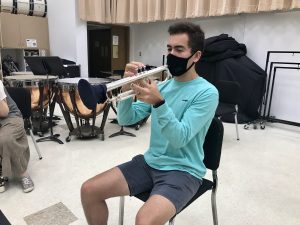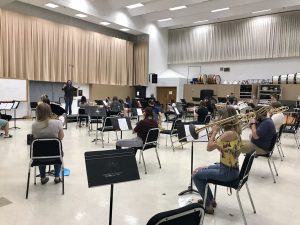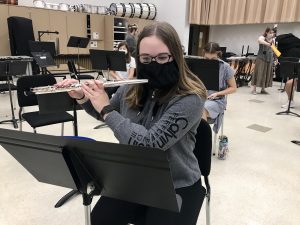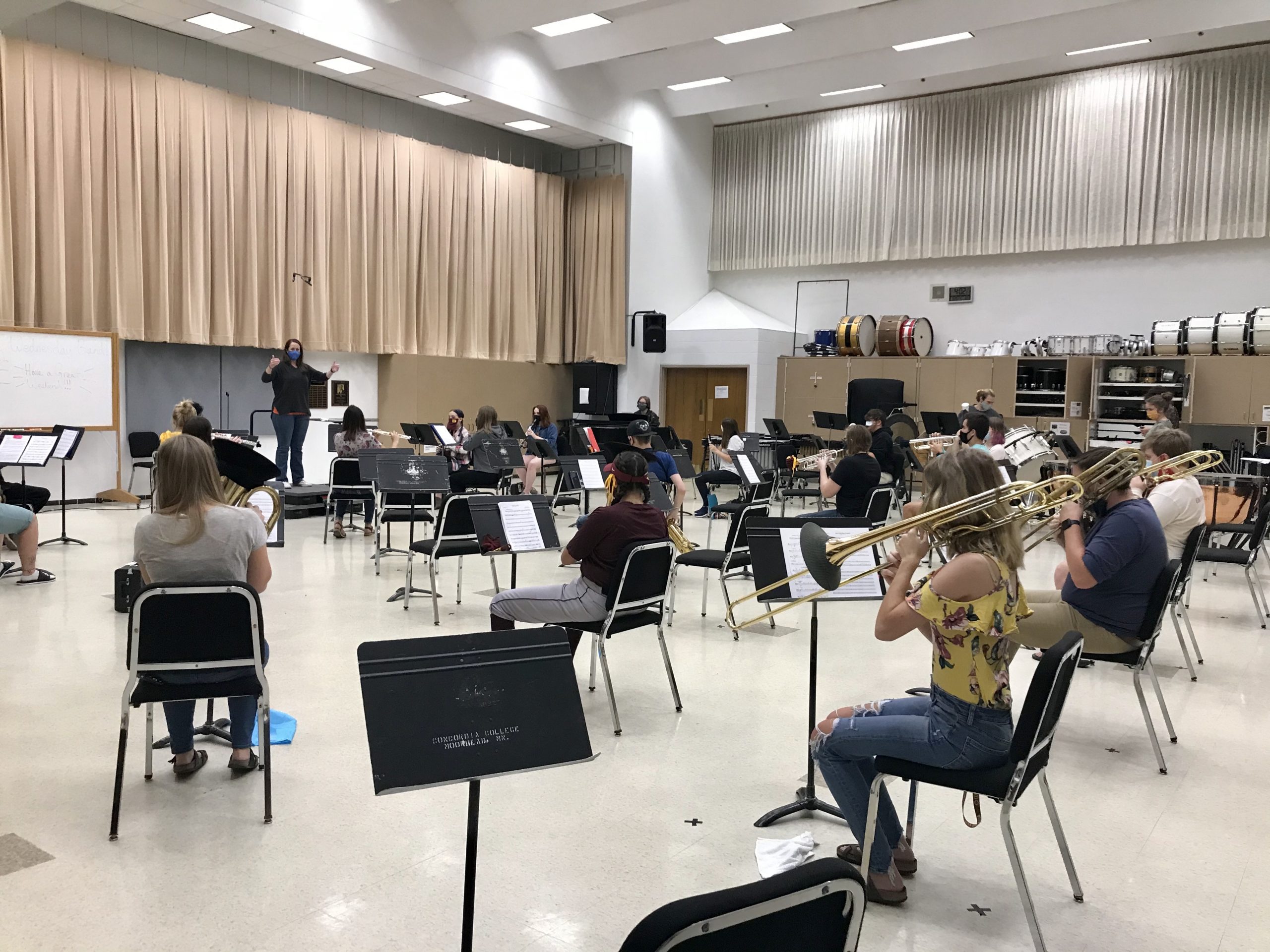The Concordia community is approaching normalcy as the first month of school comes to a close. Students are settling into online courses and active cases are decreasing. While the majority of students and staff are now adjusted to safety guidelines for COVID-19, the music department still faces challenges with the new precautions.

Nat Dickey, professor and chair of the music department, said “It has definitely been challenging but overall it’s been going pretty well. We have been making plans for COVID since we knew we needed to.”
Backed by scientific studies and journals, the music department has been very deliberate about these changes in order to create a healthy and safe practice environment.
Michael Culloton, director of choral activities, described the main changes of the music department in terms of four pillars: masked singing and instruments, social distancing, allowing time for proper ventilation and reducing the size of ensemble rehearsals.
Professors and faculty members have been very deliberate about the amount of people they allow in certain ensembles and choirs, keeping in mind the rehearsal spaces that are available.
“The concordia choir is typically a 72 voice choir and I made it down to 60 this year, so that we could fit into some of the rehearsal spaces together,” Culloton said.

Peter Haberman, director of band activities, agrees with these changes, but also recognizes the negative aspect of divided rehearsals.
“I noticed that it takes some of the students a little bit longer to recognize what they are or are not doing [right] because they don’t have somebody next to them bringing that next level,” Haberman said.
First-year music education major Ava Pfiefer is part of the Kantorei choir. She reflected on the smaller rehearsal sizes.
“It’s been difficult to know what the entire choir will sound like. We also only have 20-30 minutes so we don’t get as much time together either,” Pfiefer said.

While rehearsals look different this year, staff and students are finding ways to make the most of the limited time they have together. Students and staff are now focusing on an individualistic approach to learning.
“Chamber music is one of the best ways to build independent and individual musicianship,” Haberman said. “The students have really found education to be an opportunity rather than an obligation.”
Several conductors are looking to expand learning by including differing music pieces into the curriculum. Conductors have been including pieces that are specific to instrument sections as well as pieces from different time periods to develop student skills.
“We’re trying to make opportunities out of this unique situation we’re in to explore some great repertoire by composers that we don’t always have the opportunity to do,” Haberman said.
The music department staff have also been trying to be more inclusive, including pieces made by women and people of color.
“President Craft issued a justice in action statement after George Floyd’s death this summer. Music and the arts are responding. We hope to further the dialogue around things like that,” said Dickey.
From social activism to student creativity, music plays a major part in Concordia’s academic experience. However, a concert setting will not be achievable this year because of COVID regulations. Concerts will now be recorded and streamed at a later date. Although a live audience isn’t possible, students are still grateful to be back on campus and playing music.
“I was involved in music all four years of high school, so I was nervous that I wouldn’t get to have that same experience at Concordia. I’m happy to be here and creating music in a college setting,” said Pfiefer.
This sentiment is shared by students and faculty.
“Our students need to be creative. They need to be making art in one way or another,” Culloton said. “It looks and feels different this year, but if [music] can be the one bit of consistency in their lives, that’s a good thing and I am thankful for it.”
While music continues to be a major part of student’s lives, it extends to the entirety of Concordia’s community.
“Music plays a critical role in uplifting the human spirit. It is so important that during a time like this that we do continue, so that not only the students and the faculty that make the music, but also those who listen in, have the opportunity for that solace,” Dickey said.
Music will continue to be a cornerstone of Concordia, but none of it would be possible without dedication and resilience.
“I am really excited that Concordia has embraced this on-campus learning experience in a safe way. I can see a lot of students and faculty doing great work even though there are new protocols. I am really proud of everybody’s efforts: administration, faculty, staff, and students,” Haberman said.

